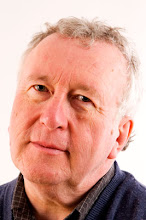The Best Beloved, Penroses and I saw the production of "Merrily We Roll Along"(Stephen Sondheim) at the Watermill, Newbury, Thursday matinee on the 6th after lunch in the restaurant. This was my second viewing of this particular Sondheim musical, having seen a Donmar production with Daniel Evans a couple of years ago. I remember the Donmar version with particular affection as I was blubbing by the time we had got to the end of the show. The blubbing was induced by the excellent performances, the music and the story of youthful ideals and friendships lost in the search for fame and success. The two songs which get me going are "Friends Like Us" and "As days go by". Sondheim also gives a producer in the show a hummable tune, with which he derides the lack of hummable tunes produced by the young songwriters in the plot. Sondheim is just occasionally too clever for his own good. The show lasted sixteen performances on Broadway and was a parting of the ways, I believe, between Sondheim and Harold Prince.
"Merrily We Roll Along" is told chronologically in reverse. We begin with a speech by Frank Shepherd to an academic presentation day audience to which he has been invited as guest speaker because of his fame and success on Broadway and in the movie industry. The musical then works backward through his life showing the shortcuts and betrayals needed to become the success he is. The show actually ends where the life story of Frank Shepherd the composer begins - on the rooftop of a student community hall watching Telstar cross the skies with his two old friends, Mary and Charley. They pledge eternal friendship and commit themselves to the cause of producing remarkable music. This is an anthem to youth and youthful aspirations.
John Doyle, the director, made a name for himself by taking a production of "Sweeney Todd" from the Watermill all the way to Broadway in 2005. Doyle uses actor-musicians to perform his pieces. The twelve strong cast each plays one or more musical instruments as well as singing. The cast are the orchestra as well. The Watermill is a tiny theatre with a tiny performing space. There is no set other than a large vertical tape recorder on the back wall. The space is dominated by Frank's grand piano. I am pleased we saw this production from the circle so we were looking down on the action as i suspect the view from the stalls would have been highly restricted by the piano and pianist. As it was the action mainly consisted of duets and trios around the piano. The emphasis was mainly upon singing and the Best Beloved commented that it was more akin to watching a concert version than a stage one. I certainly did not feel the upswell of emotion that I had experienced during the Donmar version. It may have been due to having to admire the skill with which speeches or songs would be delivered, followed by the raising of an instrument to add to the score. One admired the skill rather than felt the emotion. Sam Kenyon as Frank was good looking but slight and this, for me, rather summed up his performance. I thought Elizabeth Marsh as Mary and Thomas Padden as Charley caught the disillusioned companions well but perhaps that is because the characters themselves are more worthy than Frank. I liked Rebecca Jackson as Gussie with black, thigh high split skirt and black fish net stockings perched high on the piano. Well, I would, wouldn't I?
Johnson Willis, with shaven pate, gets the part of Joe the producer and hapless husband to Gussie. Joe gets the hummable tune in which he derides the unhummable nature of much of the musical output of the composer/ songwriter duo that is Frank and Charley.
I love the intimacy of the Watermill and I love the intimacy of "Merrily We Roll Along" but somehow John Doyle's production never used either intimacy to arouse my soul sufficiently in a beautifully if minimally staged show. I admired it but like my heart strings to be twanged and they weren't.
Sunday, 9 March 2008
Subscribe to:
Post Comments (Atom)

No comments:
Post a Comment